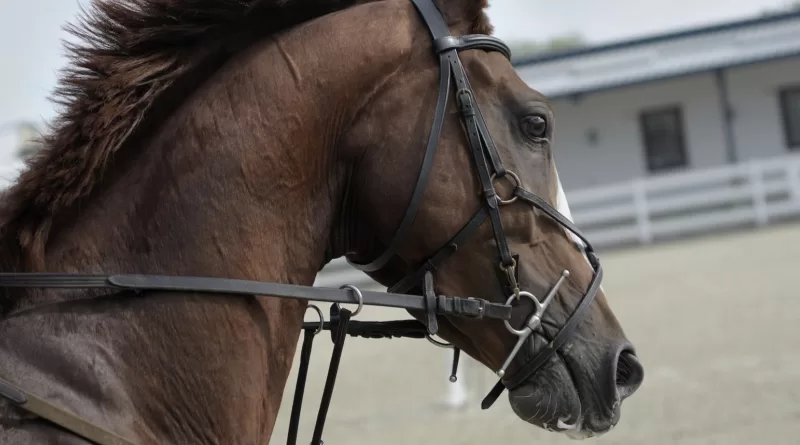How Old Can a Horse Live: Unveiling the Equine Lifespan
Horses have long been cherished companions of humanity, serving as loyal steeds, working partners, and even sources of inspiration for countless generations. But have you ever wondered just how long these magnificent creatures can live? The question, “How old can a horse live?” is a fascinating one, filled with intrigue and curiosity. In this blog post, we will embark on a journey to uncover the secrets of equine longevity, exploring the factors that influence a horse’s lifespan, introducing you to some of the world’s oldest horses, and answering frequently asked questions about horse aging.
The Quest for Equine Longevity
Before we dive into the specifics of how long a horse can live, let’s take a moment to appreciate the wonder and majesty of these remarkable animals. Horses have been our companions for thousands of years, offering their strength, speed, and companionship to humans throughout history. They have played crucial roles in transportation, agriculture, sports, and even therapy. Their enduring presence in our lives makes the question of their lifespan all the more captivating.
Factors Influencing a Horse’s Lifespan
The longevity of a horse is influenced by a myriad of factors, both environmental and genetic. Understanding these factors can shed light on how we can help our equine friends live longer, healthier lives.
- Breed: Different horse breeds have varying average lifespans. Smaller breeds tend to live longer than larger ones. For instance, ponies are known for their remarkable longevity, often living into their 30s.
- Diet and Nutrition: Proper nutrition is key to a horse’s longevity. A balanced diet rich in essential nutrients, vitamins, and minerals can significantly impact their overall health and lifespan.
- Healthcare: Regular veterinary care, including vaccinations, dental check-ups, and deworming, is essential to prevent and treat illnesses that could shorten a horse’s life.
- Exercise: Just like humans, horses benefit from regular exercise. It helps maintain muscle tone, joint health, and cardiovascular fitness, all of which contribute to a longer life.
- Environment: The quality of the horse’s living conditions matters. Providing shelter from harsh weather, clean water, and a safe, comfortable environment can add years to their life.
- Genetics: Some horses are genetically predisposed to live longer. Breeding practices can play a role in selecting for longevity traits.
- Stress Levels: High-stress levels can negatively impact a horse’s health. Minimizing stress through proper handling and a calm environment can extend their lifespan.
- Social Interaction: Horses are social animals, and companionship is crucial for their mental well-being. Loneliness and isolation can lead to stress and health issues.
Meet the Longest-Lived Horses
To truly appreciate the potential for equine longevity, let’s meet some of the world’s oldest horses. These remarkable individuals have defied the odds and lived well beyond the average lifespan of their species.
Old Billy – The Guinness World Record Holder
Old Billy, an English barge horse, is the undisputed champion of equine longevity. Born in 1760, Old Billy lived for an astonishing 62 years. His remarkable story earned him a place in the Guinness World Records, where he remains a symbol of equine endurance and resilience.
Sugar Puff – A Pony’s Long Journey
Sugar Puff, a Shetland pony, is another astonishing example of a long-lived horse. She reached the remarkable age of 56 years, captivating the hearts of many with her gentle disposition and enduring spirit.

Orchid – The Thoroughbred Survivor
Orchid, a Thoroughbred mare, defied the odds by living to the ripe old age of 49 years. Known for her grace and elegance, she enjoyed a well-deserved retirement in her later years.

Methuselah – A Symbol of Resilience
Methuselah, a Norwegian Fjord horse, lived to be 42 years old. His story reminds us of the resilience of these magnificent creatures and the special bond that can develop between horses and their caregivers.

See Also: How long do horses live? Amazing Facts About Horses’ Life
These remarkable horses serve as living testaments to the potential for longevity within the equine world. Their stories inspire us to strive for the best possible care for our own equine companions.
Frequently Asked Questions about Horse Aging
As we explore the question of how old a horse can live, it’s only natural to encounter some common queries about horse aging. Let’s address some of the most frequently asked questions on this topic:
1. What is the average lifespan of a horse?
- The average lifespan of a horse ranges from 25 to 30 years. However, with excellent care, some horses can live well into their 30s and even beyond.
2. Can a horse live over 40 years?
- Yes, it’s possible for a horse to live over 40 years, although it’s relatively rare. Longevity often depends on factors such as genetics, diet, healthcare, and living conditions.
3. How can I help my horse live a longer life?
- To increase your horse’s chances of a long and healthy life, provide proper nutrition, regular veterinary care, a clean and comfortable environment, opportunities for social interaction, and regular exercise.
4. Do smaller horse breeds live longer than larger ones?
- Generally, smaller horse breeds tend to live longer than larger ones. Ponies, for instance, are known for their extended lifespans compared to larger horse breeds.
5. Can a horse’s age be determined by its teeth?
- Yes, to some extent. A horse’s age can be estimated by examining its teeth, known as “aging by dental inspection.” This method can provide a rough estimate of a horse’s age.
6. Are there any specific health issues that commonly affect aging horses?
- Older horses are more susceptible to certain health issues, such as arthritis and dental problems. Regular veterinary check-ups are essential to address these issues promptly.
7. What is the oldest horse on record?
- Old Billy, an English barge horse, holds the Guinness World Record for the oldest horse, living to be 62 years old.
8. Do male and female horses have different lifespans?
- In general, there isn’t a significant difference in lifespan between male and female horses. The longevity of a horse is more influenced by factors like breed, genetics, and care.
9. Can a horse’s lifestyle affect its lifespan?
- Yes, a horse’s lifestyle can significantly impact its lifespan. Horses that are regularly subjected to strenuous activities, like racing or intense work, may experience more wear and tear on their bodies, potentially affecting their longevity.
10. How does dental care affect a horse’s lifespan?
- Proper dental care is crucial for a horse’s overall health and can influence their lifespan. Dental issues can hinder their ability to chew food properly, leading to digestive problems and malnutrition if not addressed.
11. What role does genetics play in a horse’s lifespan?
- Genetics can play a significant role in determining a horse’s lifespan. Some bloodlines may be more predisposed to certain health conditions or have a history of longevity. Selective breeding can be used to favor traits associated with longer life.
12. Can specific supplements or medications help extend a horse’s lifespan?
- While certain supplements and medications can support a horse’s overall health, there’s no magic pill that guarantees a longer life. It’s essential to consult with a veterinarian before introducing any supplements or medications into a horse’s diet.
In Conclusion
Now, as we conclude our exploration of the question, “How old can a horse live?” it becomes evident that this inquiry leads us down a multifaceted path, revealing the intricate web of factors that determine equine longevity. This journey underscores the vital role that our care, vigilant attention to health, and a profound understanding of these noble creatures play in extending their lives.
As we delve deeper into the world of horses, celebrating the remarkable tales of the world’s oldest equines, we are afforded a glimpse into the enduring connection between humans and these majestic beings. Whether a horse’s life extends to the age of 30 or beyond, their presence in our lives remains an everlasting testament to the bonds forged through time.
So, let us treasure every fleeting moment shared with our equine companions, for in those moments, we witness their graceful gallop through the chapters of their long and extraordinary journey.
Enjoyed this article? You May Also Like:
- Learn in 5 minutes about Cryotherapy for Horses
- Penicillin in Horses; Impeccable Guide in 10 minutes
- Excede Antibiotic For Horses, Fantastic Facts in 5 minutes
- The Science of Oxytocin in Horses: How This Hormone Influences Equine Behavior
- Can Horses Swim? Everything You Need To Know About Horse Swimming




